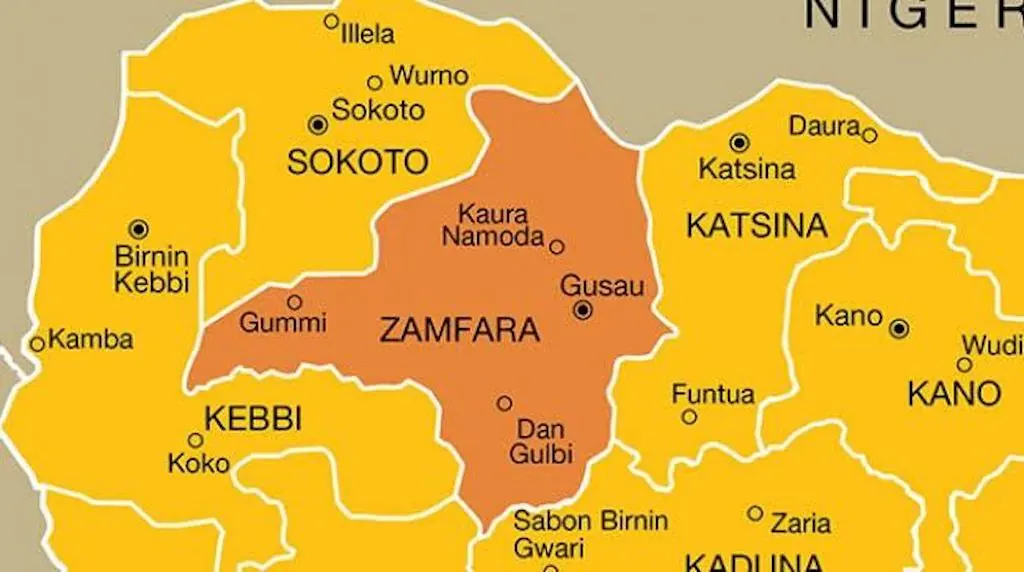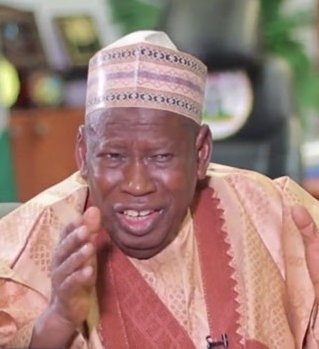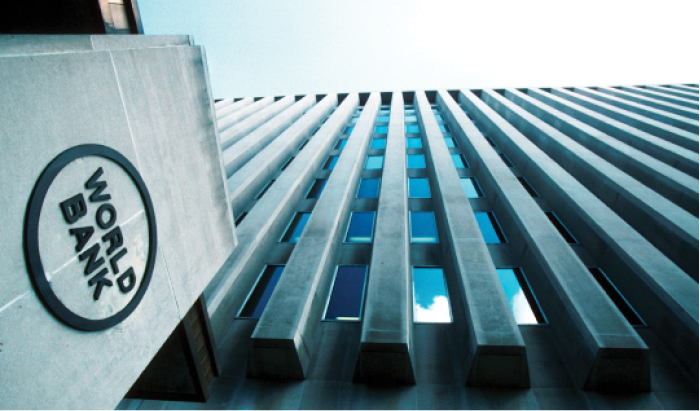Following Pope Francis’s death as the 266th pontiff on Monday, the papal conclave will elect a new pope, with 137 cardinal electors that would attend a College of Cardinals meeting in the Vatican’s Sistine Chapel.
As of April 21, when Pope Francis died, there were a total of 252 cardinals, who typically hold the title for life; 137 of them, known as cardinal electors (or College of Cardinals) who are under 80 years of age, one of the criteria for being a cardinal elector; 109 of the electors were appointed by late Francis, 22 by his predecessor, Pope Benedict and five by Pope John Paul II.
Daily Trust reports that the Vatican officially announced that Pope Francis died on the morning of April 21, 2025, at 7:35 AM local time.
Cardinal Kevin Farrell, the Vatican camerlengo, who made the announcement, said the pope died on Easter Monday, at his residence in the Vatican’s Casa Santa Marta.
“At 7:35 this morning, the Bishop of Rome, Francis, returned to the home of the Father,” the statement said.
The pope’s death comes just one day after a frail Francis greeted thousands in St. Peter’s Square after Easter Mass in his open-air popemobile − and just weeks after a long hospital stay during which he battled bilateral pneumonia and other health issues. He was discharged last month to recover at his residence at Casa Santa Marta.
The church in coming days
Once Pope Francis is buried, the Dean of the College of Cardinals, Cardinal Giovanni Battista Re, has 15 to 20 days to summon the cardinals to Rome.
Born Jorge Mario Bergoglio, Pope Francis, established many firsts during his leadership of the Catholic Church since 2013, before he passed away on Easter Monday, April 21, 2025, aged 88.
Reports have it that due to the nature of cardinal appointments Francis made during his 12-year papacy, there will inevitably be some expectation that the Argentine pontiff’s successor will be another non-European, and that like Francis, he could be another progressive.
However, the election process that will take place once Francis is buried is highly secretive and nothing will be certain until white smoke pouring from the chimney of the Sistine Chapel tells the world that a new pope has emerged.

About the cardinals
Cardinals are a pontiff’s closest collaborators, running key departments at the Vatican and dioceses around the world and when a pope dies or resigns, those cardinals aged under 80, are eligible to enter a secret conclave to choose the new head of the Roman Catholic Church from among themselves.
The cardinals will set the date for the start of the conclave after they start arriving in Rome in the coming days.
The complex vote will reveal if the current cardinals, most of them put there by Francis, believe his embrace of liberal social values and his progressive reform agenda have gone too far and whether a period of retrenchment is needed.
Cardinals are named at ceremonies called consistories, where they are given their ring, a red biretta or a square cap and pledge loyalty to the pope.
Pope Francis held 10 consistories and with each of them, he increased the chances that his successor may be another non-European, having beefed up the Church in places where it is either a tiny minority or where it is growing faster than in the mostly stagnant West.
For many centuries, most cardinals were Italian, except for a period when the papacy was based in Avignon, southern France between 1309 and 1377, when many of the popes were French.
The internationalisation of the College of Cardinals began in earnest under Paul VI (1963-1978), before it was accelerated by John Paul II (1978-2005), a pope who was the first non-Italian pope in 455 years.
While Europe still has the largest share of cardinal electors, with about 39 per cent, it went down from 52% in 2013 when Francis became the first Latin American pope, while the second largest group of electors is from Asia and Oceania, with about 20 per cent.
Step-by-step: After the death of a pope
According to Sachin Jose, a digital consultant and Catholic journalist, the processes began with confirmation of death, with the Camerlengo (Chamberlain of the Holy Roman Church) officially confirming the pope’s death.
Traditionally, he gently calls the pope’s baptismal name three times. If there’s no response, he declares the pope dead.
This is followed by the destruction of the Fisherman’s Ring, a signet used to seal official documents, which is broken by the Camerlengo in the presence of cardinals. This prevents its misuse and symbolizes the end of the pope’s authority.
This is followed by an official announcement by the Vatican. Bells may toll and mourning customs begin, including the flying of flags at half-mast in some places.
The next is the declaration of the traditional nine days of mourning, a period during which masses are offered for the repose of the pope’s soul. The body is then prepared and displayed in St. Peter’s Basilica for public veneration. This is then followed by the burial.
The pope is traditionally buried in the crypt beneath St. Peter’s Basilica (though he may request another resting place).
This was what Pope Francis, did as he announced his intentions to be buried at the Papal Basilica of Saint Mary Major, a break in tradition from popes of the past.
The next process is the Sede Vacante (Vacant See), during this time, all governance of the Church is paused, except for routine matters handled by the Camerlengo.
No new appointments or major decisions can be made until a new pope is elected.
This is followed by the preparation for the Conclave, with the College of Cardinals gathering in Rome.
After at least 15 days but no more than 20 days following the pope’s death, the conclave begins to elect a new pope, with only cardinals under 80 years old eligible to vote.
The Conclave held in the Sistine Chapel under strict secrecy, is the next process, where voting continues until a candidate receives two-thirds majority.

Nigeria’s role in electing a new pope
The new pope always comes from within the College of Cardinals, this time around among the 137 (including one Nigerian) under the age of 80. Of the total 252 cardinals, there are four Nigerians.
Of these 137, cardinal electors, a majority of more than 50 are from Europe, while 24 are from Asia and 18 from Africa. The countries with the most electors are Italy (17), the United States (10), Brazil (7) and France (5). Nigeria has only one elector and three non-elector cardinals.
The only Nigerian elector is Peter Cardinal Okpaleke, the Catholic Bishop of Ekwulobia, Anambra State, who was appointed a cardinal by the late Pope Francis in 2022.
Other cardinals from the country are; Francis Arinze (92), John Onaiyekan (81), and Anthony Olubunmi Okogie (88).
They all can participate in the debate for the next pope, but do not have a vote when the secret ballots are cast later this month or early in May as they are above 81 years of eligibility of voting rights.
Legacies of Pope Francis
Pope Francis made it his mission to transform the longstanding conservative image of the Catholic Church. He pushed for climate change reform, better treatment of refugees and greater attention to persecution of religious minorities.
According to Forbes, Pope Francis challenged corporate executives and public sector leaders to adopt a more inclusive, fair and transparent economic system that is equipped to address the dire challenges plaguing humanity and earth.
He also changed the funeral rites, signaling a different approach to how he wanted his death to be treated. Those were the first changes in 24 years.
The changes were deemed necessary after the death of Emeritus Pope Benedict XVI in 2022, when the Vatican had to arrange a funeral for a retired pope for the first time in 600 years. And it presented Francis with the opportunity to simplify things.
Francis has avoided much of the grandeur and pageantry of the papacy, opting (for instance) to live in the Vatican hotel rather than the Apostolic Palace, where previous popes lived and also prefers to travel in smaller cars rather than SUVs.
One of the changes he made to funeral plans for popes was doing away with the requirement that the pope be placed on an elevated platform in St. Peter’s Basilica during the public viewing. Instead, his body and those of future popes will lie in state in a simple coffin.
Also the burial tradition requiring three interlocking coffins made of oak, cypress and lead was done away with.
There are equally distinguished legacies of the late pope, as he was the first pope from Latin America, the first Jesuit, and the first to be named after St Francis of Assisi, a medieval monk who lived in poverty and sought to rid the Catholic Church of corruption.
He was also the first pontiff – at least in modern times – to face open calls for his resignation and accusations of heresy from disgruntled traditionalists.
Early in his papacy, Francis’ unusually free remarks and unorthodox displays of humility made him immensely popular, particularly among those who were not usually close to the Catholic Church.
In July 2013, he famously said of homosexuals: “If a person is gay and seeks God and has goodwill, who am I to judge?”
Months later, he made the front cover of Rolling Stone magazine.
Cardinal Luis Antonio Tagle (Philippines)
Tagle holds the title of Cardinal-Bishop of San Felice da Cantalice a Centocelle (pro hac vice). He also serves as President of the Catholic Biblical Federation, Grand Chancellor of the Pontifical Urbaniana University, and is actively involved in several Roman Curia departments.
Cardinal Pietro Parolin (Italy)
Parolin has been the Vatican’s Secretary of State since 2013 and joined the Council of Cardinals in 2014, the same year he was elevated to cardinal.
Cardinal Péter Erdő (Hungary)
Erdő has been Archbishop of Esztergom-Budapest and Primate of Hungary since 2003
Cardinal Raymond Leo Burke (USA)
Burke is a prominent conservative figure in the Catholic Church. He served as Archbishop of St. Louis and Prefect of the Apostolic Signatura, the Church’s highest court, from 2008 to 2014.
He was also Patron of the Sovereign Military Order of Malta between 2014 and 2023.
Cardinal Matteo Zuppi (Italy)
Zuppi has been the Archbishop of Bologna since 2015 and previously served as an auxiliary bishop in Rome.
Cardinal Willem Jacobus Eijk (Netherlands)
Eijk, a former medical doctor and moral theologian, has been Archbishop of Utrecht since 2007 and became a cardinal in 2012.
Cardinal Mario Grech (Malta)
Grech has served as Secretary General of the Synod of Bishops since 2020, playing a pivotal role in the global synodal process.
Cardinal Peter Turkson (Ghana)
Turkson currently heads the Pontifical Academies of Sciences. He previously led the Pontifical Council for Justice and Peace and was the first prefect of the Dicastery for the Promotion of Integral Human Development
Cardinal Angelo Scola (Italy)
Scola is a seasoned theologian and philosopher who served as Archbishop of Milan from 2011 to 2017 and Patriarch of Venice before that.
Cardinal Pierbattista Pizzaballa (Italy)
Pierbattista Pizzaballa OFM is an Italian Catholic prelate who has served as Latin Patriarch of Jerusalem since November 6, 2020.
What Nigerians say about late Pope Francis
President Tinubu
President Bola Ahmed Tinubu joined the Catholic faithful and Christians worldwide in extoling the late Pope Francis, calling on the world to celebrate his legacy, by honoring him not with words alone but with action.
In a message he personally signed, President Tinubu said the late Pontiff was committed to lifting those who are down, “healing our communities, and defending the dignity of every person.”
According to the president, his passing, coming just after the celebration of Christ’s resurrection, is a sacred return to his maker at a time of renewed hope for Christians.
Former President Muhammadu Buhari
Former President Muhammadu Buhari, former vice president Atiku Abubakar, and the presidential candidate of the Labour Party (LP) in the 2023 elections, Peter Obi also extolled the virtues of the late Pope Francis.
Buhari, in a statement on Monday, and released by his spokesman, Malam Garba Shehu, joined Christians all across the world in mourning the death of the head of the Catholic Church.
The former president said Christians in Nigeria and all over the world would miss the exemplary leadership of the church by a pope who served the poor and the weak, and cared much about migrants and refugees.
Faithful speak
Ambassador Abah Anthony John, a parishioner from the Catholic Church of the Archangels Parish Durumi Gaduwa Abuja, said that as a Catholic, the life of Pope Francis was an era of transformation and positive contributions to the Church.
“The reforms he brought especially in the area of environments, the laudato si documents that talked about care of our common home, the earth, is a masterpiece. The laudato si encyclical has been providing solutions to global environmental problems such as pollution, desertification, global warming, climate change and so many other environmental challenges that man has created for himself. We in the Catholic Church in Nigeria, will miss Pope Francis for his simplicity, for his care for the poor and for his ability to reach out to those who are in need”, he said.
On her part, Lady Delphine Asu, a parishioner at St. Augustine Catholic Church, Sun City Estate, Abuja, said the late pope ran a good race, as he was selfless and very accommodating.
“Because he was accommodating, some misunderstood it to mean he compromised. He gave up expensive gifts for the poor. He was a champion in environmental activism. His encyclical – Laudato Si, is a reference document on the care of the earth.
“He also promoted peace and peaceful coexistence. Even at his age and with his ill health, he was in touch with the happenings in the world. He consistently prayed for an end to war and persecution.
“He was very versatile and appreciated arts and other creative works. He was so humble and freely associated with youths and children. He will be greatly missed,” Asu said.
Catholic Secretariat of Nigeria
The Catholic Secretariat of Nigeria (CSN) on its part in a message by Rev. Fr. Michael Banjo, the Secretary-General, on behalf of the President of the Catholic Bishops’ Conference of Nigeria (CBCN), Most Rev. Lucius Iwejuru Ugorji, said it is not without spiritual significance that the late Pope Francs passed during the Easter Season; a time when the Church proclaims with joy the victory of Christ over death.
“His return to the Lord in this sacred season offers us a consoling reminder of the Christian hope in the resurrection and the promise of eternal life.”, he said.
By Abbas Jimoh, Dalhatu Liman, Baba Martins, Balarabe Alkassim, Itodo Daniel Sule & Dotun Omisakin












